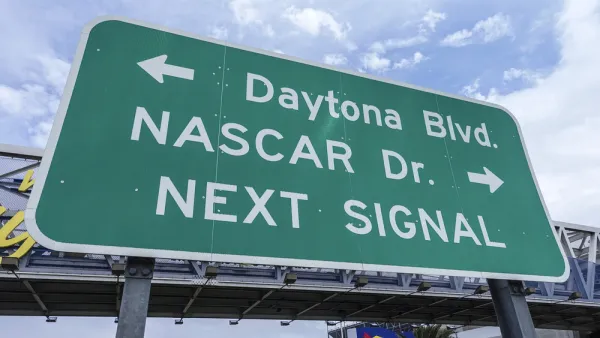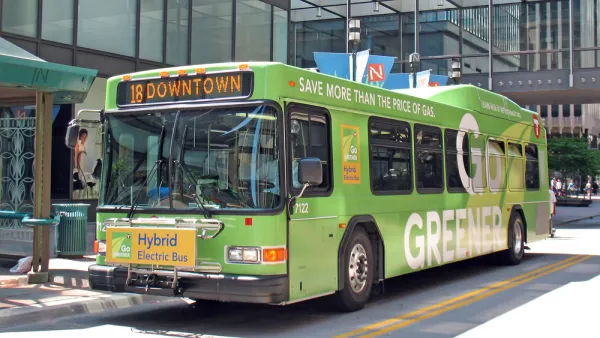Manufacturers say yes, arguing that the reduction in vehicle crashes decreases traffic congestion. Other features improve traffic flow. But these are safety technologies, not emission-reducing measures, that critics worry will water-down CAFE.
That's Corporate Average Fuel Economy (CAFE), and meeting the stringent 54.5 miles per gallon by year 2025 target may be exceedingly difficult, particularly with low gas prices, so allowing credit for safety features like automatic braking and adaptive cruise control warrants merit, argues the Alliance of Automobile Manufacturers. "Fewer accidents will lead to less congestion and better traffic flow—factors that, when combined with speed management, could cut vehicle emissions by as much as 30%, say University of California at Riverside researchers," writes Mike Spector for The Wall Street Journal.
It's not a new argument. "In 2012, when setting new fuel-economy standards, regulators said safety features should be evaluated only on their ability to save lives or reduce injuries, and not be considered for mileage credits," writes Spector.
David Strickland, a former [National Highway Traffic Safety Administration] NHTSA head now practicing law at Venable LLP, said applying safety features could end up “watering down CAFE,” because quantifying their precise role is challenging. “It’s going to be very difficult to prove the amount of crashes avoided…that turns into the amount of congestion avoided that turns into the amount of fuel savings and emissions reduced.
We've seen this argument applied to traffic mitigation measures like traffic signal synchronization that planners argue reduce pollution by reducing the amount of time motorists sit behind red lights. But the argument can be made that smoother traffic flow makes driving more attractive compared to other modal alternatives, as Angie Schmitt of Streetsblog wrote on August 15, 2012.
NHTSA, which jointly sets CAFE standards with the Environmental Protection Agency (EPA), appears to show some willingness to consider the new safety features "ahead of 2017’s so-called midterm review of U.S. mileage standards."
New vehicle sales data for February shows average fuel economy of 25.2 mpg, "according to figures from the University of Michigan Transportation Research Institute," writes Spector. "That’s down modestly from January as low gas prices send consumers flocking to less-efficient pickup trucks and sport-utility vehicles."
FULL STORY: Self-Braking Cars Are Safer, but Do They Boost MPG?

Analysis: Cybertruck Fatality Rate Far Exceeds That of Ford Pinto
The Tesla Cybertruck was recalled seven times last year.

National Parks Layoffs Will Cause Communities to Lose Billions
Thousands of essential park workers were laid off this week, just before the busy spring break season.

Retro-silient?: America’s First “Eco-burb,” The Woodlands Turns 50
A master-planned community north of Houston offers lessons on green infrastructure and resilient design, but falls short of its founder’s lofty affordability and walkability goals.

Test News Post 1
This is a summary

Analysis: Cybertruck Fatality Rate Far Exceeds That of Ford Pinto
The Tesla Cybertruck was recalled seven times last year.

Test News Headline 46
Test for the image on the front page.
Urban Design for Planners 1: Software Tools
This six-course series explores essential urban design concepts using open source software and equips planners with the tools they need to participate fully in the urban design process.
Planning for Universal Design
Learn the tools for implementing Universal Design in planning regulations.
EMC Planning Group, Inc.
Planetizen
Planetizen
Mpact (formerly Rail~Volution)
Great Falls Development Authority, Inc.
HUDs Office of Policy Development and Research
NYU Wagner Graduate School of Public Service



























